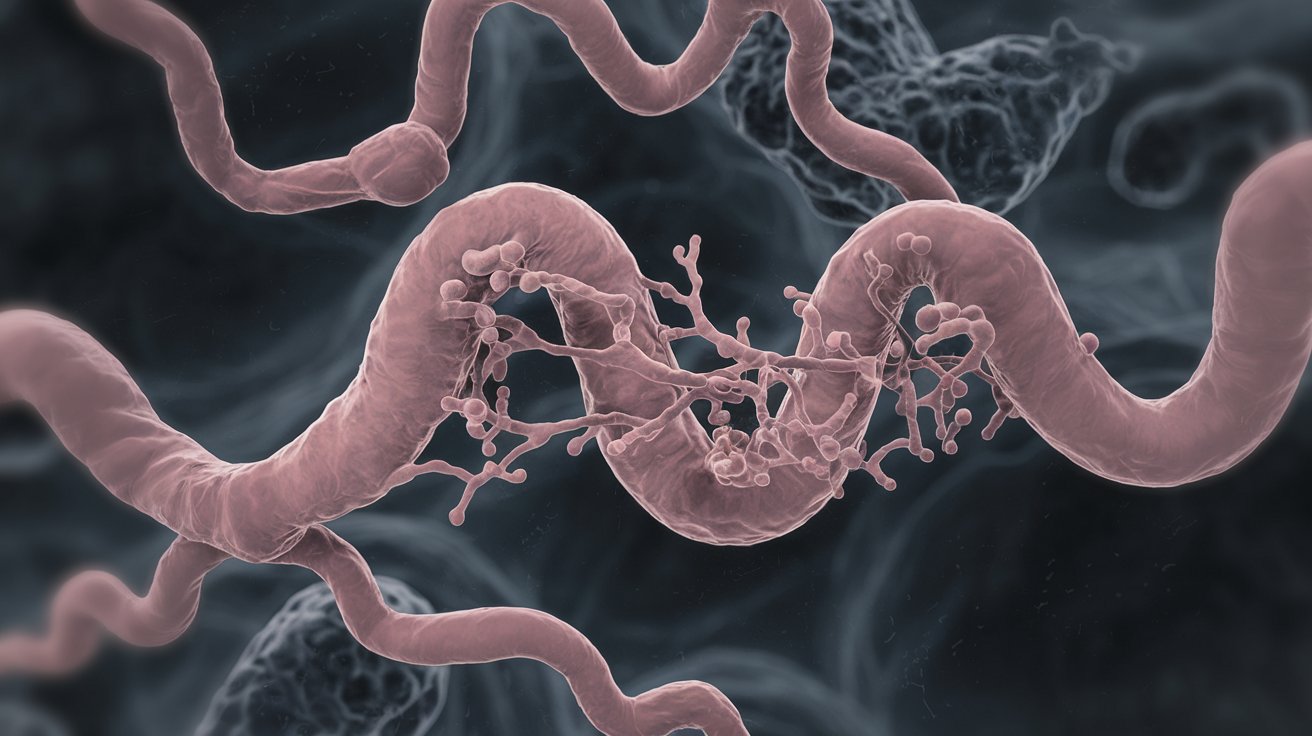
Complex 1 Mitochondrial Respiratory Chain Deficiency is a rare genetic disorder affecting the mitochondria, the powerhouse of cells. This condition disrupts the first step in the mitochondrial respiratory chain, leading to energy production issues. Symptoms can vary widely, from muscle weakness and developmental delays to more severe neurological problems. Understanding this disorder is crucial for early diagnosis and management. Researchers are continually seeking better treatments and potential cures. In this post, we'll explore 30 intriguing facts about Complex 1 Mitochondrial Respiratory Chain Deficiency, shedding light on its causes, symptoms, and current research. Whether you're a student, parent, or just curious, these facts will provide valuable insights into this complex condition.
Key Takeaways:
- Complex 1 Mitochondrial Respiratory Chain Deficiency is a rare genetic disorder affecting the mitochondria, causing a range of health issues. Early diagnosis and ongoing research are crucial for managing symptoms and finding better treatments.
- Patients with this condition may experience muscle weakness, developmental delays, and neurological impairments. Support groups, advocacy organizations, and awareness efforts play a vital role in providing resources and emotional support.
What is Complex 1 Mitochondrial Respiratory Chain Deficiency?
Complex 1 Mitochondrial Respiratory Chain Deficiency is a rare genetic disorder affecting the mitochondria, the powerhouse of cells. This condition disrupts the normal function of the mitochondria, leading to a range of health issues. Here are some fascinating facts about this condition.
-
Complex 1 is the largest enzyme complex in the mitochondrial respiratory chain, consisting of 45 subunits.
-
This deficiency is the most common mitochondrial disorder, accounting for approximately 30% of all mitochondrial diseases.
-
Symptoms can vary widely, from muscle weakness and fatigue to severe neurological impairments.
-
The condition can be inherited in an autosomal recessive or mitochondrial DNA-linked manner.
Symptoms and Diagnosis
Understanding the symptoms and how this condition is diagnosed can help in early detection and management.
-
Early signs often include poor growth, developmental delays, and muscle weakness.
-
Some patients may experience lactic acidosis, a buildup of lactic acid in the body, which can be life-threatening.
-
Neurological symptoms can include seizures, ataxia (loss of control of body movements), and developmental regression.
-
Diagnosis typically involves a combination of genetic testing, muscle biopsies, and biochemical assays.
Genetic Basis
The genetic underpinnings of Complex 1 Mitochondrial Respiratory Chain Deficiency are complex and diverse.
-
Mutations in nuclear DNA or mitochondrial DNA can cause this deficiency.
-
Over 100 different genes have been implicated in this disorder.
-
The NDUFS1 gene is one of the most commonly affected genes in this condition.
-
Genetic counseling is recommended for families affected by this disorder to understand inheritance patterns and risks.
Treatment and Management
While there is no cure, various treatments and management strategies can help alleviate symptoms and improve quality of life.
-
Coenzyme Q10 supplements are often prescribed to support mitochondrial function.
-
Physical therapy can help maintain muscle strength and mobility.
-
Dietary modifications, including a high-fat, low-carbohydrate ketogenic diet, may benefit some patients.
-
Antioxidants like vitamin E and vitamin C are sometimes used to reduce oxidative stress in cells.
Research and Future Directions
Ongoing research is crucial for better understanding and treating this condition.
-
Scientists are exploring gene therapy as a potential treatment for mitochondrial disorders.
-
Stem cell research offers hope for regenerating damaged tissues in affected individuals.
-
New diagnostic tools, such as next-generation sequencing, are improving the accuracy of genetic testing.
-
Clinical trials are underway to test new drugs and therapies for mitochondrial diseases.
Impact on Daily Life
Living with Complex 1 Mitochondrial Respiratory Chain Deficiency presents unique challenges.
-
Patients often require multidisciplinary care, including neurologists, geneticists, and physical therapists.
-
Regular monitoring of organ function, particularly the heart and kidneys, is essential.
-
Many patients use mobility aids, such as wheelchairs or walkers, to maintain independence.
-
Support groups and counseling can provide emotional support for patients and their families.
Notable Cases and Awareness
Raising awareness about this rare condition can lead to better support and resources for affected individuals.
-
Several advocacy organizations, like the United Mitochondrial Disease Foundation, work to support research and patient care.
-
Rare Disease Day, held on the last day of February, helps raise awareness about mitochondrial disorders.
-
Public figures and celebrities have shared their experiences with mitochondrial diseases, bringing attention to these conditions.
-
Social media platforms have become valuable tools for connecting patients and sharing information.
Conclusion
Complex 1 Mitochondrial Respiratory Chain Deficiency is a challenging condition, but ongoing research and support can make a significant difference in the lives of those affected.
-
Early diagnosis and intervention are crucial for managing symptoms and improving outcomes.
-
Continued research and advocacy are essential for finding better treatments and ultimately a cure for this rare disorder.
Final Thoughts on Complex 1 Mitochondrial Respiratory Chain Deficiency
Complex 1 Mitochondrial Respiratory Chain Deficiency is a rare but significant condition. Understanding its impact on cellular energy production helps in grasping its effects on the body. Symptoms can vary widely, making diagnosis challenging. Genetic testing often plays a crucial role in identifying the deficiency.
Treatment options remain limited, focusing mainly on managing symptoms and improving quality of life. Ongoing research aims to find better therapies and potential cures. Awareness and education about this condition are essential for early detection and intervention.
If you or someone you know shows signs of this deficiency, consulting a healthcare professional is vital. Early diagnosis can lead to better management and improved outcomes. Stay informed, seek support, and advocate for more research to combat this challenging condition.
Frequently Asked Questions
Was this page helpful?
Our commitment to delivering trustworthy and engaging content is at the heart of what we do. Each fact on our site is contributed by real users like you, bringing a wealth of diverse insights and information. To ensure the highest standards of accuracy and reliability, our dedicated editors meticulously review each submission. This process guarantees that the facts we share are not only fascinating but also credible. Trust in our commitment to quality and authenticity as you explore and learn with us.


